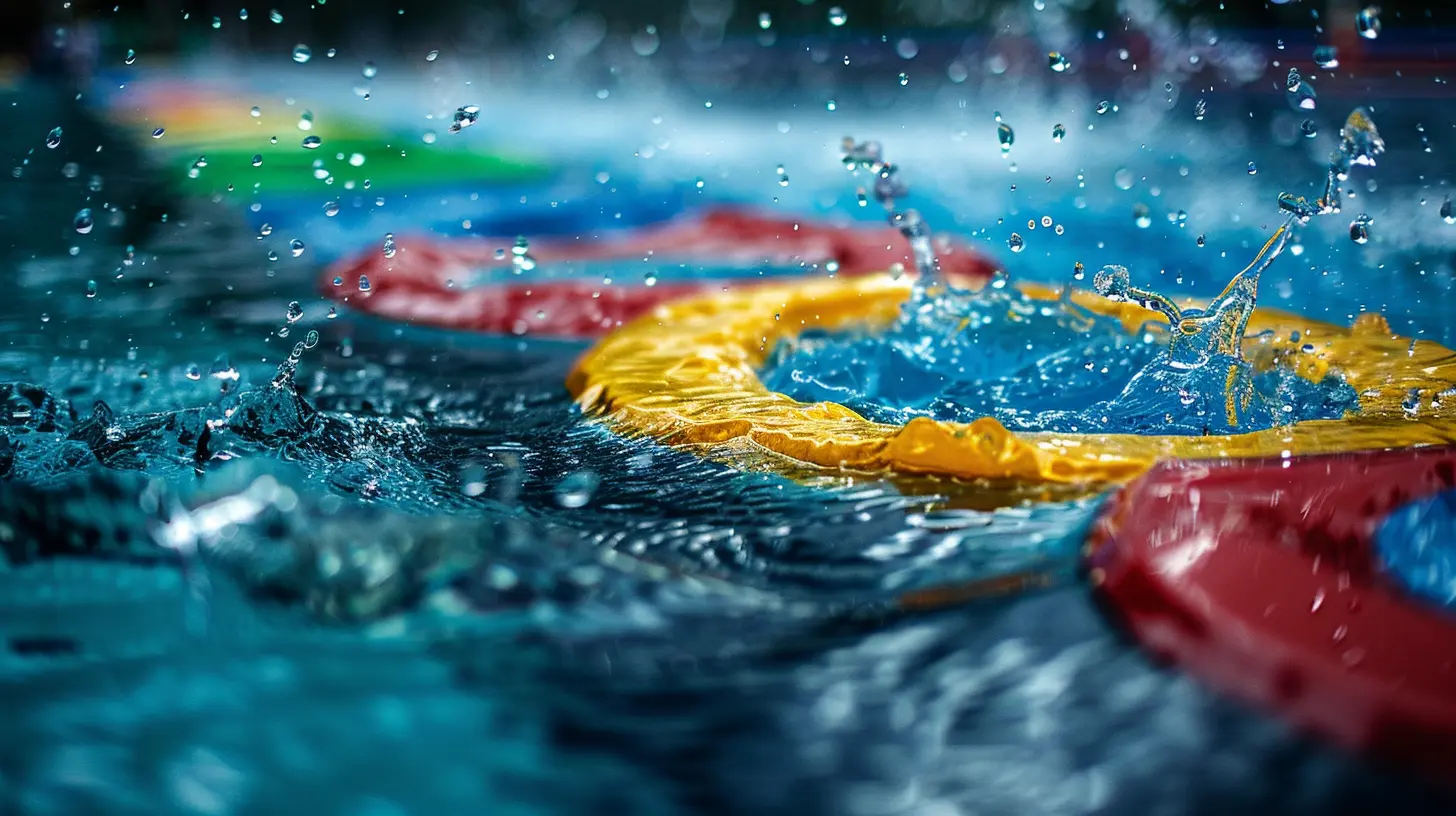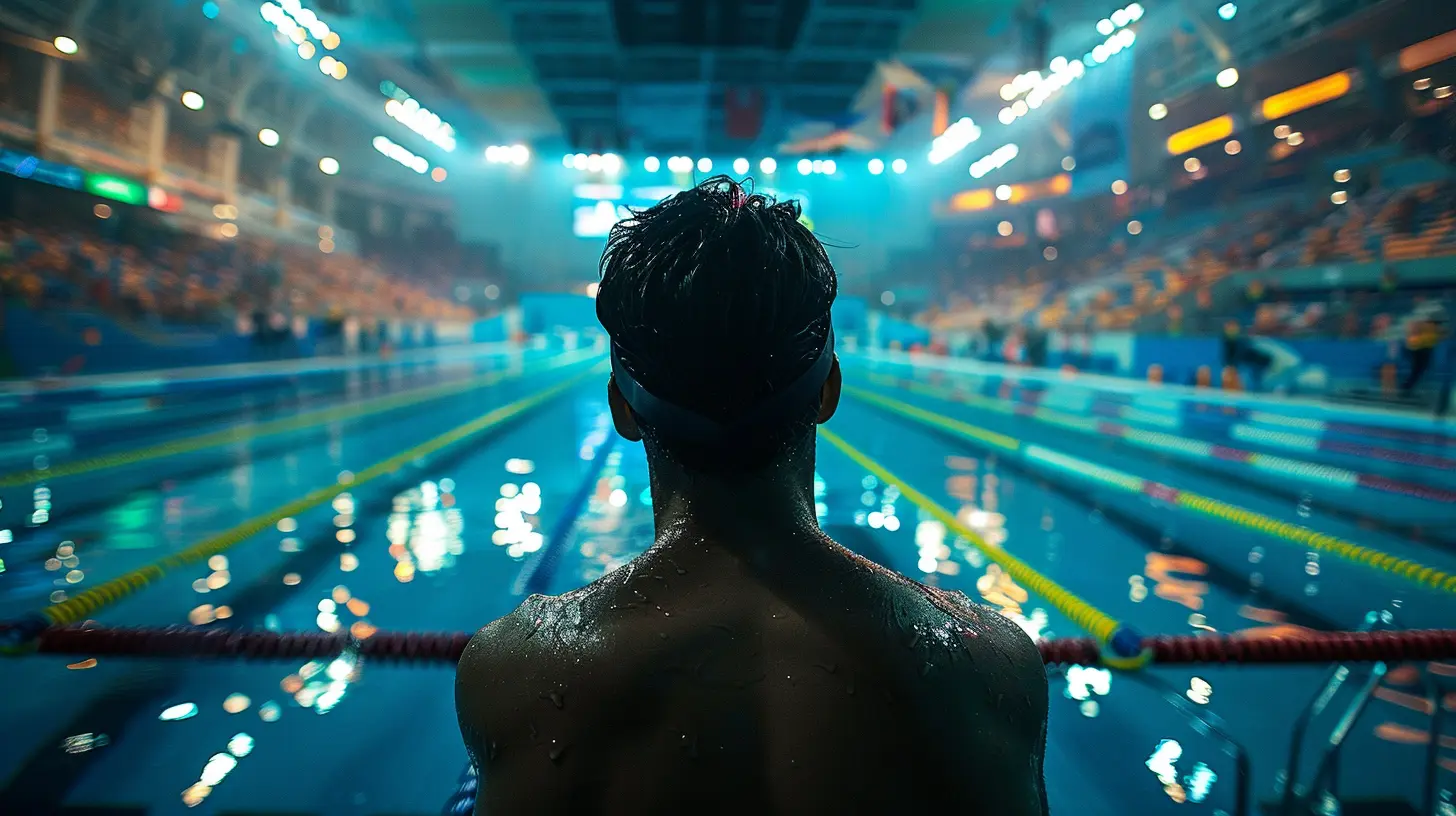From Track to Pool: Comparing the Most Grueling Olympic Events
9 June 2025
Let’s face it — the Olympics are not for the faint of heart. Athletes push their bodies to the brink, waving goodbye to comfort and wrapping themselves in sweat, discipline, and a whole lot of grit. But have you ever wondered which Olympic events are the most physically and mentally brutal? I mean, what’s tougher — sprinting 100 meters like your pants are on fire or swimming lap after lap until your arms feel like spaghetti noodles?
Welcome to the ultimate showdown: track vs. pool. In this quirky and sweat-dripping article, we’re diving headfirst (and sprinting full throttle) into the most grueling events the Olympics have to offer. Buckle up, it’s about to get intense — and maybe just a bit weird.
🏃♂️ The Track: Where Speed and Endurance Collide
Before we jump into chlorinated chaos, let’s talk about the track. It's not just a circle you jog around in P.E. class — it’s the arena where legends are made and bodies are broken (figuratively… mostly).1. The 400-Meter Sprint: The Worst Minute of Your Life
If the 100-meter dash is pure explosion, the 400-meter is an explosion followed by a slow-motion nightmare. Runners go all-in from the first step, only to be chased by their own lactic acid demons by the halfway point.Why’s it so brutal?
- It’s a sprint… that masquerades as middle-distance.
- There’s no pacing, just pain.
- It’s short enough to demand max effort, long enough to burn everything you’ve got.
Usain Bolt never even ran it competitively at the Olympics. That should tell you something.
2. The 10,000-Meter: The Patience Marathon
Okay, so maybe sprinting isn’t your thing. You’re more of a slow-burning candle, right? Enter the 10,000 meters — 25 laps of mental and physical fortitude. It’s not just a race; it’s a chess game with sneakers.What makes it grueling?
- Constant pace strategy (go too fast = collapse, too slow = no medal).
- Opponents can mess with your rhythm — it’s psychological warfare.
- Oh, and it’s 6.2 miles. On a track. Just spinning in circles like a caffeinated hamster.
3. The Decathlon: The Ultimate Grit Test
One race too easy? How about ten? The decathlon is basically the Iron Man of the track and field world. It covers ten different events from sprints to jumps to throws to a final 1500-meter run, just to make sure you didn’t miss pain that day.Here’s why it’s downright ridiculous:
- Requires speed, strength, agility, and endurance. All in one.
- Two days of back-to-back events. No recovery time.
- Mental fatigue hits hard. Like, crying-into-your-Gatorade hard.
Verdict for Track: Whether you’re running like the cops are behind you or pacing for 25 laps while wondering about life decisions, the track doesn't cut any slack. You're pushed, pulled, and pounded every second.
🏊♂️ The Pool: Where Water Doesn't Cool, It Destroys
Think swimming is relaxing? Yeah, try telling that to someone mid-200 butterfly while they’re swallowing half the pool and planning their next breath like it’s gold. Olympic swimming is a whole different animal — and it doesn’t have gills.1. The 200-Meter Butterfly: The Silent Screamer
Ah yes, the stroke that Michael Phelps made famous — and everyone else made painful. The 200-meter butterfly is basically four laps of controlled chaos. Arms flailing, lungs screaming, legs kicking just enough to stop you from sinking.Why it’s wonderfully wicked:
- Butterfly is the hardest, most punishing stroke to maintain.
- There’s no “easy” part of this race. It’s misery the whole way.
- Technique must stay perfect. One slip = belly flop of doom.
Imagine flapping your arms like a bird on Red Bull while holding your breath underwater. For 2 minutes. Yeah, not so zen anymore.
2. The 1500-Meter Freestyle: The Swimmer’s Marathon
Another long grind but in water. The 1500-meter freestyle is 30 laps of mind-numbing consistency. You can’t hear crowds. There’s no surface to pound with excitement. Just you, the black line on the bottom, and that haunting inner monologue.Why it’s a beast:
- Stamina and consistency are key — lose focus, you sink.
- Swimmers push near max effort every lap — for over 15 minutes.
- No breaks, no pauses. Unlike track events, there’s no coasting.
It’s like running a marathon in molasses. While holding your breath. With a swimsuit wedgie. Yikes.
3. The 400-Meter Individual Medley (IM): The Quadruple Punishment
Not a fan of choices? This race makes you do all four strokes: butterfly, backstroke, breaststroke, and freestyle. Each one is a brutal test. Together? It’s like solving a Sudoku, a Rubik’s Cube, and a crossword puzzle — all while being chased by a shark.Why it deserves respect:
- Requires mastery of all strokes.
- Smooth transitions are critical.
- Each stroke works different muscle groups — so your ENTIRE body burns.
By the time freestyle comes around, most swimmers are gasping, flailing, and praying for the wall. Or a lifeguard.
Verdict for Swimming: You might look cool slapping water and rocking a swim cap, but Olympic swimming is basically waterboarding yourself for sport. It’s relentless, technical, and sneaky-dangerous.
🥵 The Cross-Discipline Mental Torture
Okay, now imagine doing all this under the pressure of millions watching you. Cameras. National pride. Four years of training boiled into one moment.Whether it’s dry track or wet pool, these events share common pain points:
- Mental strain: One wrong move — whether it's a mistimed breath or a stumble out of blocks — ruins everything.
- Physical exhaustion: Muscles betray you. Lungs scream. Your body says "nope" while you scream "go".
- Training toll: These athletes train YEARS for just a few minutes of performance. One-and-done stuff.
Ever had a job interview that lasted 2 minutes and decided your entire career? That’s what these athletes face — with more abs and fewer resumes.
🎖️ So… Which Event Reigns Supreme?
Now the million-dollar question: which is tougher — track or pool?Honestly? It’s like picking your favorite flavor of pain. Both are monsters in different ways:
- Track events hit hard and fast, or they slowly dismantle your soul lap by lap.
- Swimming events make you fight physics, technique, and oxygen all at once.
It’s apples and oranges, but both set on fire and thrown at your face.
If you want pure suffering per second — 400-meter sprint and 200-meter butterfly take gold.
If it’s endurance and mental madness — 10,000-meter run and 1500-meter freestyle win.
As for the true lunatics? Decathletes and IM swimmers who say, “Sure, give me more ways to be in pain, please.”
🧠 Final Thoughts: Respect the Grind
Whether it’s pounding pavement or slicing through water, Olympic athletes in these events aren’t just competing — they’re surviving. It’s a test of body, brain, and borderline masochism. So the next time you catch the Games and see someone gasping at the finish line, know this: they didn’t just race — they went through something.And that, my friend, deserves all the gold medals in the world.
all images in this post were generated using AI tools
Category:
OlympicsAuthor:

Easton Simmons
Discussion
rate this article
2 comments
Taylor Kirkpatrick
Who knew sweating on land and water could be this intense?
June 17, 2025 at 2:58 AM

Easton Simmons
Absolutely! Both environments push athletes to their limits in unique ways.
Ivory McCallum
Endurance defines true champions.
June 11, 2025 at 12:24 PM

Easton Simmons
Absolutely! Endurance is essential in both track and pool events, showcasing the resilience and determination that defines true champions.


